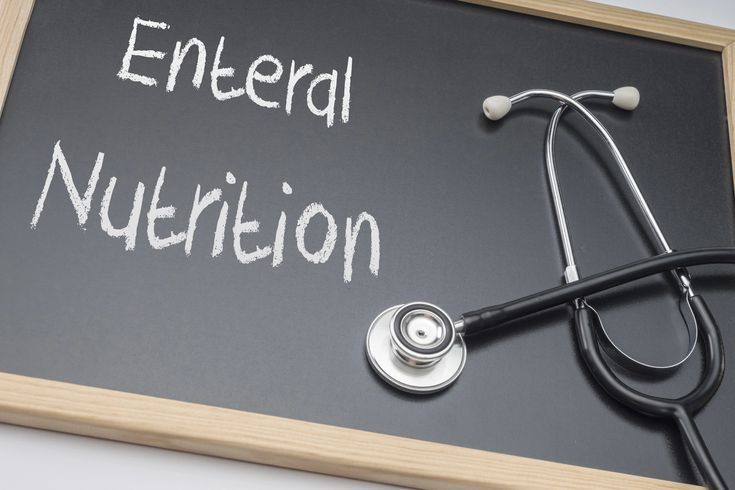Enteral Nutrition: A Lifeline for Patients Who Cannot Eat Normally

Enteral nutrition (EN) is a medical nutrition therapy that delivers essential nutrients directly into the digestive system through a feeding tube. It is often used for individuals who cannot eat or digest food properly but still have a functional gastrointestinal tract. This form of nutrition can be life-saving, especially for patients recovering from serious illnesses, surgeries, or neurological conditions.
Why is Enteral Nutrition Needed?
Enteral nutrition is recommended when a person:
✅ Cannot chew or swallow due to conditions like stroke, Parkinson’s disease, or ALS.
✅ Has severe malnutrition or is unable to meet nutritional needs orally.
✅ Has digestive issues but a functioning intestine (e.g., Crohn’s disease, gastroparesis, or short bowel syndrome).
✅ Needs nutritional support while recovering from surgery, trauma, or burns.
Types of Enteral Feeding Tubes
Depending on the patient’s condition and duration of feeding, different feeding tubes may be used:
🔹 Nasogastric Tube (NGT): Inserted through the nose into the stomach; used for short-term feeding (less than 4-6 weeks).
🔹 Nasoduodenal (NDT) or Nasojejunal Tube (NJT): Placed through the nose into the small intestine, often for patients with delayed gastric emptying or reflux.
🔹 Gastrostomy Tube (G-tube or PEG tube): Surgically placed through the abdomen into the stomach for long-term feeding.
🔹 Jejunostomy Tube (J-tube): Inserted directly into the small intestine, used when stomach feeding is not an option.
Case Study: Managing Enteral Nutrition in a Stroke Patient
Background
Mr Ade, a 65-year-old retired banker, suffered a severe stroke that left him unable to swallow safely. Despite his stable condition, he was at risk of malnutrition, muscle loss, and dehydration due to his inability to eat normally. His family was advised to start enteral nutrition via a nasogastric tube.
Intervention
A nutritionist conducted a full assessment and recommended a calculated enteral feeding regimen to meet his daily nutritional needs. A balanced liquid formula rich in proteins, carbohydrates, vitamins, and minerals was prescribed, ensuring he received:
✅ Adequate Calories (to prevent weight loss and support recovery)
✅ Sufficient Protein (to preserve muscle mass)
✅ Essential Micronutrients (to prevent deficiencies)
✅ Proper Hydration (to maintain electrolyte balance)
The feeding schedule was adjusted based on his tolerance, digestion, and medical response.
Outcome
Within 3 weeks:
🔹 Mr Ade gained weight and showed improved strength.
🔹 His blood sugar and electrolyte levels stabilized.
🔹 He was able to transition from a nasogastric tube to a PEG tube, allowing for safer long-term feeding.
After two months of therapy, he regained partial swallowing function through speech therapy and was gradually reintroduced to pureed foods.
Key Benefits of Enteral Nutrition
✅ Prevents Malnutrition & Muscle Wasting – Ensures the body gets essential nutrients.
✅ Supports Faster Recovery – Helps patients regain strength post-surgery or illness.
✅ Reduces Infection Risks – Compared to IV feeding (parenteral nutrition), enteral nutrition carries fewer infection risks.
✅ Customizable Diets – Formulas can be tailored to specific medical conditions (e.g., diabetes-friendly, high-protein, or fiber-enriched formulas).
Challenges & Solutions in Enteral Nutrition
🔹 Tube Blockage: Prevented by flushing with water before and after feeding.
🔹 Diarrhea or Constipation: Adjusting formula type and fiber content can help.
🔹 Feeding Intolerance (Bloating, Nausea): Slower feeding rates and formula modification may be needed.
🔹 Psychological & Social Impact: Emotional support and family involvement improve patient acceptance.
Final Thoughts
Enteral nutrition plays a critical role in saving lives and improving the quality of life for patients with swallowing difficulties or severe medical conditions. Timely nutrition intervention, expert guidance, and patient-centered care make all the difference.
💡 Are you a caregiver or healthcare provider looking for expert advice on enteral feeding?
Let’s work together to provide optimal nutritional care. Reach out to us at tgncinitiative@gmail.com for support! 🚀

